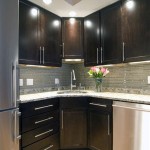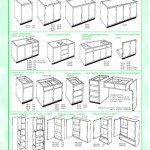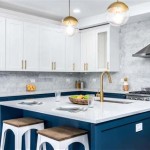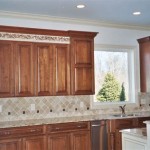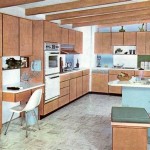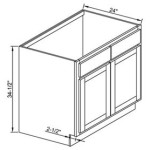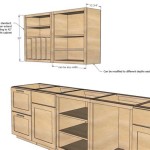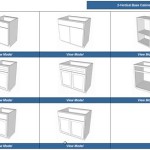Crowning Glory: Essential Aspects of Crown Moulding On Top of Kitchen Cabinets
Crown moulding, an ornamental trim installed at the juncture of a wall and ceiling, adds an air of grandeur and architectural interest to any space. When placed atop kitchen cabinets, it serves both a practical and aesthetic purpose, enhancing the functionality and visual appeal of the room.
Practical Benefits
By creating a physical barrier between the top of the cabinets and the ceiling, crown moulding prevents dust, grease, and other airborne particles from accumulating on cabinet surfaces. This reduces the need for frequent cleaning and helps maintain a hygienic cooking environment. Additionally, crown moulding insulates the space between the cabinets and the ceiling, minimizing heat loss and improving energy efficiency.
Aesthetic Considerations
Crown moulding adds a touch of elegance and sophistication to kitchen décor. It frames the cabinets and draws the eye upward, creating a sense of height and spaciousness. By matching the crown moulding to the overall style of the kitchen, from traditional to modern, it can enhance the room's cohesion and overall aesthetic appeal.
Choosing the Right Crown Moulding
- Scale: The size of the crown moulding should be proportional to the size of the kitchen. Larger kitchens can accommodate more elaborate and substantial mouldings, while smaller kitchens may benefit from a more modest profile.
- Style: Crown moulding comes in a wide range of profiles, from classic to contemporary. Choose a style that complements the existing décor and architectural features of the kitchen.
- Material: Crown moulding can be made from various materials, including wood, polyurethane, and PVC. Wood is the most traditional choice and offers a timeless look, while polyurethane and PVC are more affordable and versatile options.
Installation Tips
- Measure and plan: Determine the exact measurements and angles required before cutting the crown moulding.
- Use a miter saw: A miter saw is essential for cutting precise angles on the crown moulding.
- Secure the moulding: Use both glue and nails to secure the crown moulding firmly in place.
- Caulk the joints: Apply caulk to all joints and seams to prevent moisture damage and gaps.
- Prime and paint: Prime and paint the crown moulding to match the existing cabinetry or wall color.
By incorporating crown moulding on top of kitchen cabinets, homeowners can elevate the functionality and visual appeal of their kitchens. With careful consideration of size, style, material, and installation, this decorative element can transform a kitchen into a stylish and sophisticated space.

How To Install Crown Molding On Cabinets Young House Love

How To Install Crown Molding On Cabinets Young House Love

Crown Molding For Kitchen Cabinets Fine Homebuilding

Diy Kitchen Cabinet Upgrade With Paint And Crown Molding

Cabinet Crown Molding Rogue Engineer

Crown Moulding Embellishments Diamond Cabinetry

3 Ways To Enhance Your Kitchen With Crown Molding

Kitchen Design Details Learn About Crown Molding On Cabinetry

Decorative Molding Timberlake Cabinetry

Adding Crown Moulding To Wall Kitchen Cabinets Momplex Vanilla Ana White

